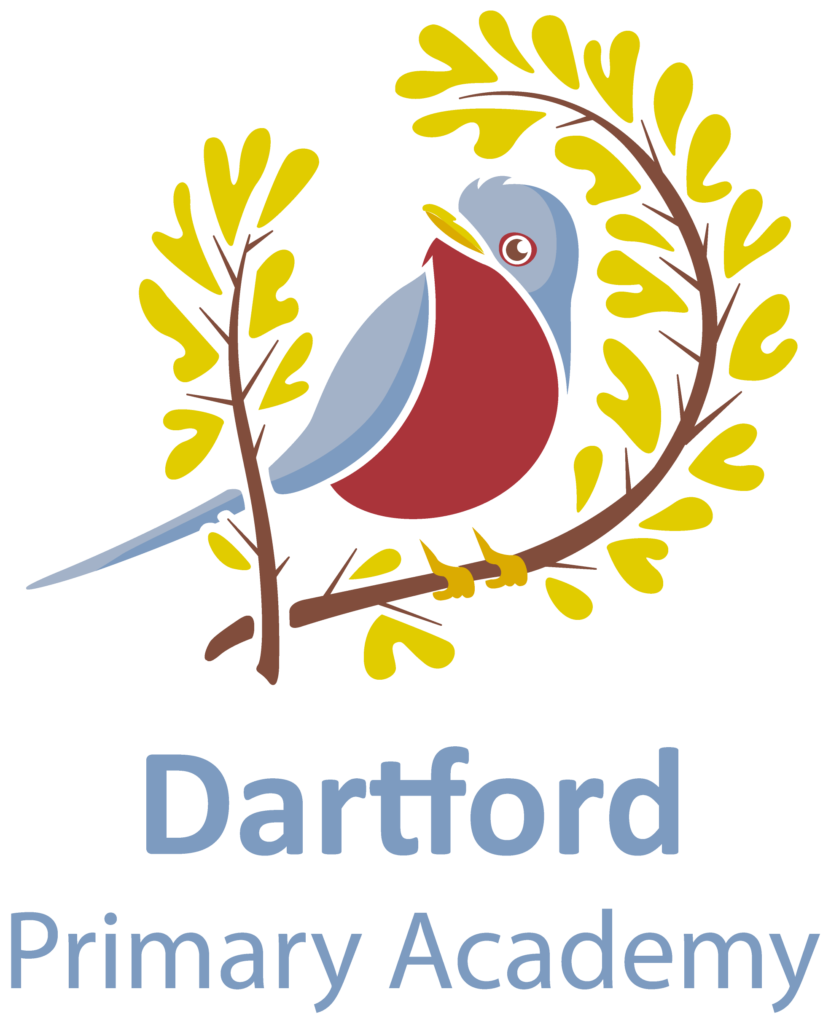At Dartford Primary Academy, we believe that the computing curriculum should promote curiosity and a love and thirst for learning. It is ambitious and empowers our children to become independent and resilient learners. We want to equip all our children, regardless of need or background, with the knowledge and skills to not only have the minimum statutory requirements of the computing National Curriculum but to prepare them for the opportunities, responsibilities and experiences of the outside world safely. We ensure pupils know how to use all aspects of the digital world safely and what to do if something worries them.
In our curriculum we aim to ensure all pupils:
- Can understand and apply the fundamental principles and concepts of computer science, including abstraction, logic, algorithms and data representation.
- Can analyse problems in computational terms, and have repeated practical experience of writing computer programs in order to solve such problems.
- Can evaluate and apply information technology, including new or unfamiliar technologies, analytically to solve problems.
- Are responsible, competent, confident and creative users of information and communication technology.
Our curriculum is planned to address social disadvantages and sequenced so that new knowledge and skills build on what has been taught before and towards clearly defined end points. We deliver a broad and balanced experience equipping all pupils with the cultural capital that they need to succeed in life.
The computing curriculum has been carefully built and the learning opportunities and assessment milestones for each year group crafted to ensure progression and repetition in terms of embedding key learning, knowledge and skills. Therefore, pupils can embed key concepts in their long-term memory and apply them fluently. We empower our staff to organise their own year group curriculums under the guidance of our subject leaders. Teachers have expert knowledge of computing that they teach through CPD opportunities and are best placed to make assessment judgements and to check pupils’ understanding effectively, and identify and correct misunderstandings. We believe aspects of computing can be woven in all subjects in order to build the children’s digital literacy and ICT skills. They link prior knowledge to new learning to deepen children’s learning. Teacher’s ensure they look at where the current learning will take them in the years following. Pupils have the opportunity to work with and on a variety of digital devices which have been adapted to meet different needs of the children. In every lesson at every relevant opportunity, we teach children how to stay safe online.
We use both dynamic and formative assessment to ensure pupils receive relevant feedback in a lesson and through tailoring our lessons based on the assessments made. We aim to use computing to enable children to communicate and manipulate their ideas through the concepts of Computer Science and digital literacy. Much of the subject-specific knowledge developed in our Computing lessons equips pupils with experiences which will benefit them in secondary school, further education and future workplaces, from research methods to use of presentation and creative tools to critical thinking. They learn how to keep themselves safe whilst working in these ways. Through learning computing at Dartford Primary Academy the children become responsible, competent, confident and creative users of information and communication technology. Consequently, all pupils make progress in that they know more, remember more and are able to do more. This gives children, including disadvantaged and those with SEND, the building blocks that enable them to pursue a wide range of interests, cultural capital and vocations in the next stage of their lives.


